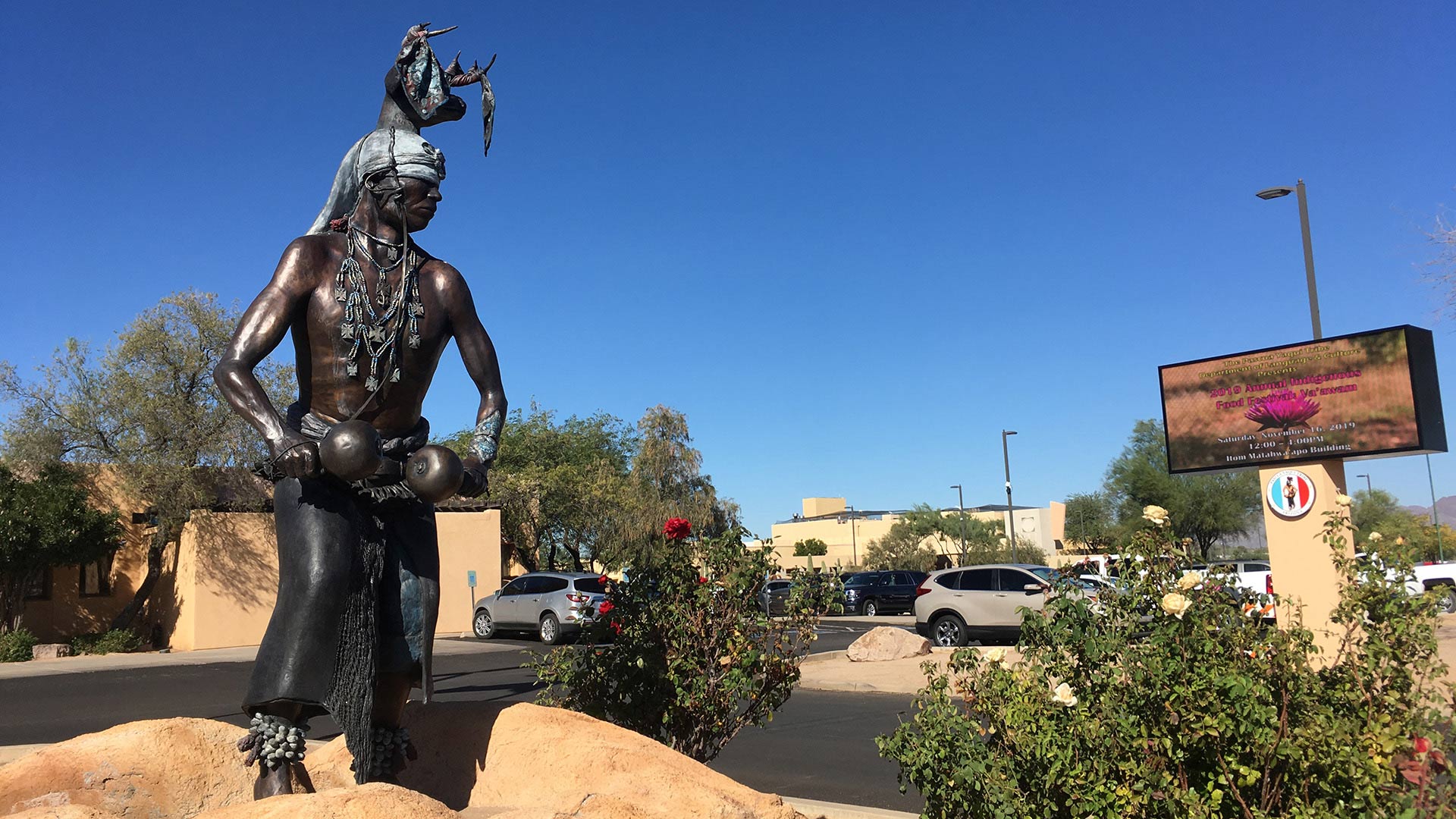 Deer dancer statue outside of the Pascua Yaqui Tribe's administration building.
Deer dancer statue outside of the Pascua Yaqui Tribe's administration building.
The Pascua Yaqui Tribe received a $900,000 federal grant to construct a water pipeline to bring nonpotable water to their reservation southwest of Tucson.
Residents of the tribal reservation will be the first in Arizona to benefit from the 2020 Water Resources Development Act. The water line will split off of the main canal of the Central Arizona Project, bringing in non-potable water to irrigate the tribe's Wellness Center, a park and ball fields.
"We started working years back on trying to figure out our water needs — our water issues, our water problems," said Pascua Yaqui Chairman Peter Yucupicio. "There was always fear because of the Drought Contingency Plan and if we'd have water available or not available."
Robyn Interpreter is one of the Pascua Yaqui Tribe's water rights attorneys. She said the Pascua Yaqui Tribe's water infrastructure is provided by the City of Tucson, but due to some water restrictions the amount of water going to the reservation is limited "so that Tucson had certainty."
"At the same time though, Pascua Yaqui reservation needs a water supply, and the water supply that was agreed upon in the intergovernmental agreement is not enough to serve the reservation," Interpreter said.
She said the tribe has an additional 500-acre feet of Central Arizona Project water, but she says "that is not enough still to serve the water needs of the reservation" which is approximately 2,200 acres. This project would free up 50 acre-feet of drinking water from the City of Tucson for the tribe each year.
U.S. Rep. Greg Stanton of Arizona said as the only member of the Transportation and Infrastructure Committee from Arizona, it is his responsibility to "help all of Arizona." He said the act earmarked $150 million for water projects across the state for different entities like tribal, rural or small communities.
The federal government will fund 75% of each project and the beneficiary is responsible for the final quarter.
According to a press release from Stanton's office, the tribe is expected to exceed its allotment of City of Tucson water in a few years, as its housing demand increases.
The vice chairman of the tribe, Robert Valencia, joked, "we see water, but only when it rains." He, the chairman and the Pascua Yaqui Tribal Council said they were grateful for the funds and the opportunity it gives them to plan for the future.
"Securing our water future on tribal lands, as well as rural areas, is very important to the future success of urban areas, like the Phoenix metropolitan area. We all have a stake in the success of all of Arizona," said Rep. Stanton who represents Arizona's 9th District.
He said the funds can go to projects like a community's water supply, waste water treatment, or storage and treatment.
Rep. Stanton said the act passed in December as part of a recent COVID-19 relief package, and construction of the projects falls under the supervision of the U.S. Army Corps of Engineers.

By submitting your comments, you hereby give AZPM the right to post your comments and potentially use them in any other form of media operated by this institution.